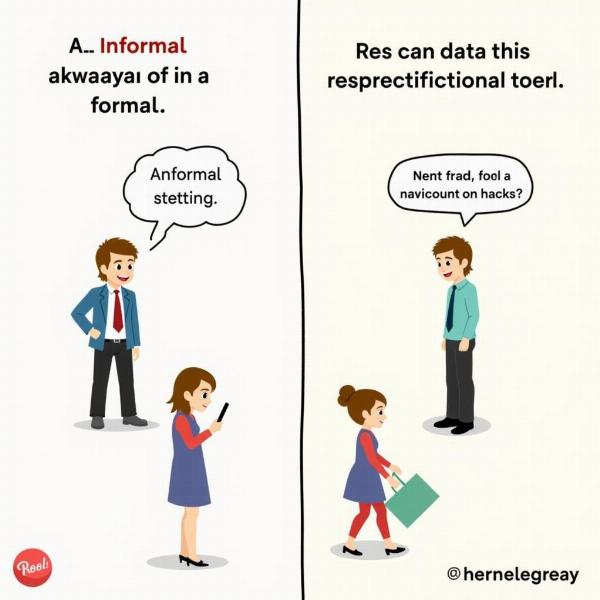Oh my god hindi meaning encapsulates a range of expressions, reflecting the diverse ways Hindi speakers convey surprise, awe, disbelief, or even frustration. Understanding these nuances is key to truly grasping the cultural context and avoiding misinterpretations. This article explores the various Hindi equivalents of “Oh my god,” examining their literal meanings, cultural significance, and appropriate usage.
Exploring Hindi Equivalents of “Oh My God”
Hindi offers a rich tapestry of expressions to convey the emotions encapsulated by “Oh my god.” These expressions vary in intensity and formality, offering nuanced ways to react to different situations. Some common equivalents include:
- हे भगवान (Hey Bhagwan): This is perhaps the most direct translation, invoking God (Bhagwan). It expresses surprise, awe, or concern, similar to “Oh my God” in English. It’s generally considered respectful and widely used.
- अरे बाप रे (Arey Baap Re): This translates to “Oh, father!” and is a more colloquial and expressive phrase often used to convey shock or disbelief.
- हाय राम (Hay Ram): Similar to “Hey Bhagwan,” this expression invokes Ram, a revered Hindu deity. It expresses surprise, distress, or lament.
- अच्छा (Accha): While literally meaning “good” or “okay,” “Accha” can also express mild surprise or disbelief depending on the tone and context.
- क्या बात है (Kya Baat Hai): Meaning “What’s the matter?” or “Wow!”, this phrase can convey surprise, admiration, or even sarcasm depending on the intonation.
Cultural Context and Usage
The choice of expression depends heavily on the context and audience. While “Hey Bhagwan” is generally acceptable in most situations, “Arey Baap Re” might be considered too informal for formal settings. Understanding these nuances is crucial for effective communication. For instance, expressing disbelief at a friend’s story might warrant a casual “Arey Baap Re,” while reacting to a solemn announcement would require the more respectful “Hey Bhagwan.”
Common Misconceptions and Avoiding Misunderstandings
While many Hindi expressions convey similar emotions to “Oh my god,” direct translations can sometimes lead to misunderstandings. It’s essential to consider the specific connotations of each phrase. For example, using a highly informal expression in a formal setting can be perceived as disrespectful.
 Avoiding Misunderstandings with Oh My God in Hindi
Avoiding Misunderstandings with Oh My God in Hindi
Beyond Literal Translations: Conveying Emotions Effectively
Learning the various Hindi equivalents of “Oh my god” goes beyond simple vocabulary acquisition. It opens a window into the rich tapestry of Indian culture, allowing for more nuanced and meaningful communication. By understanding the subtle differences between these expressions, you can effectively convey your emotions and connect with Hindi speakers on a deeper level.
Conclusion: Mastering the Nuances of Hindi Expressions
Understanding the “oh my god hindi meaning” requires delving into the diverse expressions available and their appropriate usage within the cultural context. By mastering these nuances, you can navigate social interactions with greater sensitivity and avoid potential misinterpretations, ultimately fostering more meaningful communication.
FAQ
-
What is the most common Hindi equivalent of “Oh my god”? Hey Bhagwan is generally considered the most common and widely accepted equivalent.
-
Is it appropriate to use Arey Baap Re in formal settings? While widely used, Arey Baap Re is considered informal and might not be suitable for formal settings.
-
How can I avoid misusing these expressions? Pay attention to the context and formality of the situation. When in doubt, opt for a more respectful and formal expression.
-
Besides surprise, what other emotions can these expressions convey? They can also express awe, disbelief, concern, distress, or even sarcasm depending on the intonation and context.
-
Why is understanding the cultural context important? Understanding the cultural context helps avoid misinterpretations and ensures respectful communication.
Meaning-Hindi.in is your trusted partner for accurate and culturally sensitive Hindi translation services. We specialize in various domains, including business, legal, technical, website localization, and educational document translation. Our expert linguists ensure that your message is conveyed effectively while respecting cultural nuances. Need a quick and reliable translation? Contact us today at [email protected] or call us at +91 11-4502-7584. Meaning-Hindi.in is here to bridge the language gap and connect you with the Hindi-speaking world.